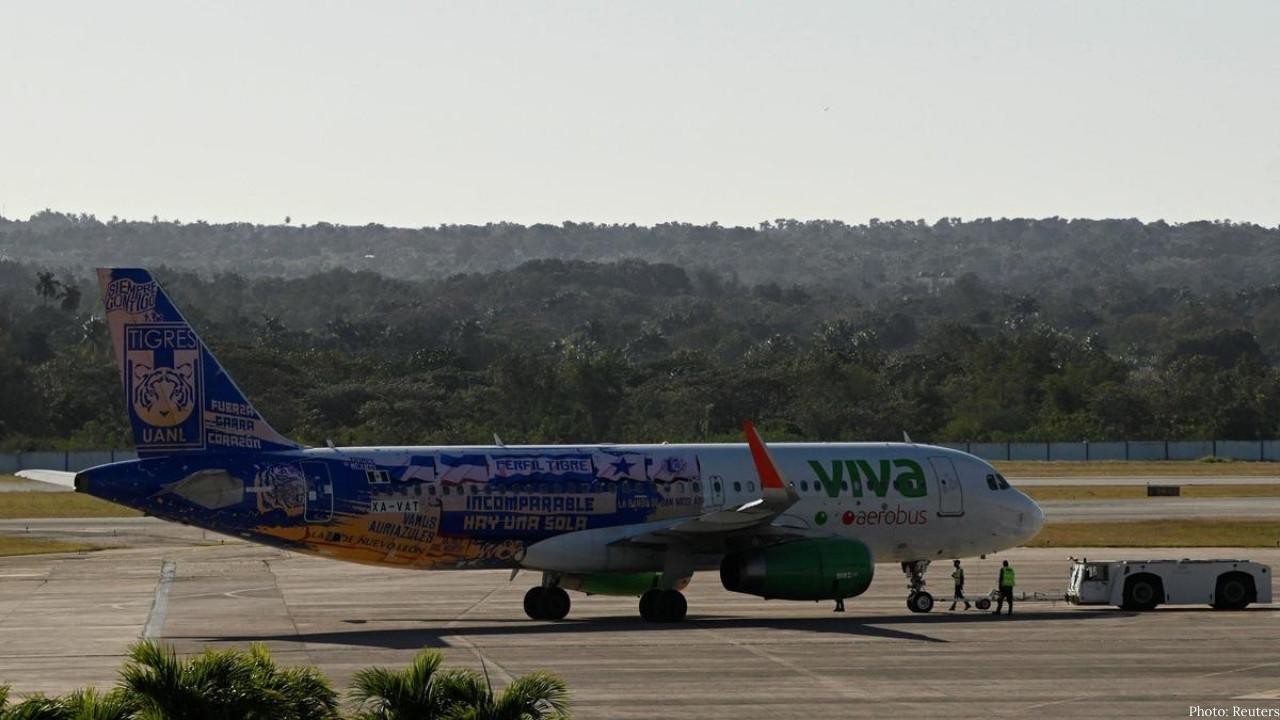You have not yet added any article to your bookmarks!

Join 10k+ people to get notified about new posts, news and tips.
Do not worry we don't spam!

Post by : Anis Farhan
In recent years, the shift to remote work has evolved from a temporary solution to a lasting change in the workplace landscape. Professionals and freelancers now seek flexibility in their living and working arrangements. In response, several countries have introduced specialized long-stay visas aimed at attracting remote workers who operate for overseas employers or manage online businesses from abroad. These visas go beyond conventional tourist permits, providing legal residency for extended periods, sometimes even years.
For individuals embracing remote work and digital nomadism, these long-stay visas present numerous opportunities: experiencing new cultures, enhancing lifestyle, and benefiting from affordable living or tax advantages while maintaining professional roles. From the perspective of the host nations, these visas contribute to foreign income, boost local economies, and are often more cost-effective than traditional work permits. This has led to an influx of countries developing attractive remote worker and digital nomad visa options.
A long-stay remote work visa is distinct from a regular tourist visa. Here are its defining features:
Duration: Unlike standard tourist visas (typically valid for 30‑90 days), these permits can allow stays of up to six months, one year, or longer, often renewable.
Work eligibility: This visa permits remote work for non-local clients or employers, rather than local employment.
Income criteria: Applicants commonly need to demonstrate a minimum income, savings, or a job contract.
Tax implications: Some visas offer attractive tax conditions or state that holders are not considered local tax residents if the stay is under a specific duration.
Family provisions: Many programs allow spouses and children to join and offer options for renewals or longer-term residence.
Supportive infrastructure: Successful programs are supported by reliable internet, coworking spaces, expat networks, and clear legal frameworks.
Assessing a country involves considering various factors: duration, cost of living, local tax environment, visa processes, and overall quality of life.
Here are notable countries providing advantageous long-stay remote work visas in 2025, each with unique perks and varying conditions.
Spain is regarded as a prime destination for remote professionals, thanks to its enviable climate, rich culture, and strong infrastructure supporting remote work. The national program offers digital nomads an initial stay of up to one year, with the opportunity for renewals. The favourable tax regime for non-resident workers is a significant attraction, alongside vibrant living options in coastal cities rich in culture and large expat communities.
Portugal shines for its affordability, historical cities, and a welcoming climate. The digital nomad visa, commonly known as the D8 visa, allows residents to live and work in Portugal for a year, with pathways for longer stays. The combination of a high standard of living and enticing tax benefits for non-residents makes it a top contender among remote work destinations.
In Asia, Thailand stands out as a significant player for remote workers looking for long-stay options. Through its long-term resident category and digital nomad programs, applicants can secure multi-year permits while enjoying a low cost of living, a warm environment, and a vibrant tourist culture. Tax treatment for foreign-earned income is also favourable in certain scenarios.
The UAE has aggressively pursued remote talent, offering top-notch infrastructure and a high standard of living, coupled with a zero percent income tax in many instances, marking it as one of the leading global destinations for digital nomads in 2025. Remote-work visas allow stays extending to a year or more, with options for family inclusion and paths to residency.
Costa Rica is emerging as a noteworthy remote-work hub due to its stunning natural beauty and stable governance. Remote work visas provide opportunities for one-year stays, often renewable, with attractive tax benefits for foreign income. Coupled with an excellent quality of life and established expat communities, it’s become a favourite among remote workers in Central America.
Croatia, known for its picturesque coastline, offers a digital nomad visa that supports non-local remote work for up to one year. Benefits can include exemptions from taxation on foreign income under certain conditions. The improving infrastructure in cities like Zagreb, Split, and Dubrovnik makes them enticing for remote workers, with affordability and accessibility to the wider European region.
When selecting a remote-work visa location, consider five main criteria:
Many programs necessitate proof of stable income or savings, with some requiring employment with a non-local employer, health insurance, or security clearance. Lower income thresholds enhance accessibility.
Visa approval doesn’t simplify tax liability. Some countries exempt foreign-earned income while others may classify visa holders as residents after specific durations. Understand local tax rules and any treaties with your home country.
Visas differ in their terms; some can be renewed or may lead to permanent residency. Determine whether you prefer short stays or a longer commitment, along with the possibility of family inclusion.
Reliable internet, coworking spaces, comfortable housing, healthcare, and local community safety are crucial factors. Evaluate lifestyle fit against visa advantages.
Post-visa expiry options should be examined. Is there a residency pathway, and what are the local work restrictions—since many visas prohibit local employment?
By comparing potential destinations on these parameters, you can find the best match for your professional and personal needs.
Flexibility: Choose your work environment independently from your employer's location, often blending travel with productivity.
Cost-effectiveness: Many locations provide lower living costs while still offering comfort and reliable internet.
Lifestyle Improvement: Reap the benefits of better climates, vibrant culture, or a slower pace of life while still earning an income.
Tax Advantages: In favourable regions, workers keep a larger share of their earnings due to lower tax obligations.
Networking Opportunities: Remote work hubs often feature coworking spaces and local expat communities that facilitate productivity and social interaction.
Tax Ambiguities: Local tax regulations may apply despite holding a visa, potentially leading to unintended residency status.
Visa Restrictions: Many visas restrict employment to foreign entities only; violating this can jeopardize your status.
Cost vs Value: Even affordable destinations might have high costs in prime locations. Assess all expenses carefully.
Health Insurance Needs: Many visa programs necessitate private health insurance, and local healthcare quality can vary.
Community Distractions: Popular travel destinations may initially seem exciting but can hinder productivity if not managed well.
Exit Rules and Renewals: Some visas mandate exit upon expiry or require time spent outside the host country before re-application. Know all terms.
Having a remote work long-stay visa doesn’t guarantee a tax-free lifestyle. Consider these crucial legal matters:
Determine local tax residency criteria, which can be triggered by prolonged stays (such as 183 days) or local employment.
Investigate the tax responsibility of your foreign-earned income in your home nation and if treaties exist with the host country.
Ensure you understand any local tax contributions or registration policies you might have to follow.
Consider the currency risks and the potential need for local banking services, as some countries have specific banking rules.
Verify any local employment prohibitions or services provided to local clients, ensuring you comply with freelance regulations.
Keep detailed records of your work history and stay duration to avoid unexpected tax liabilities.
Consulting a tax advisor or immigration professional knowledgeable about both jurisdictions is highly recommended, especially for extended stays or complex income streams.
Following this roadmap can greatly aid your application for a long-stay remote work visa:
Verify Eligibility: Confirm your remote work status (either freelance or employed), assess income requirements, and have necessary insurance.
Collect Required Documents: This includes your passport, income proof (payslips, contracts), bank statements, health insurance, and possibly accommodation details.
Submit Your Application: Typically done through an online platform. Pay the required fees. Attend any necessary interviews if required.
Select a Work-Friendly Area: Research the internet reliability, coworking facilities, local expat networks, and housing costs.
Organize Living Arrangements: Find housing, set up your banking if needed, understand visa registration upon arrival, and make arrangements for subsequent stays.
Manage Tax Responsibilities: Notify your home country’s tax authorities of your new address, ensuring clarity regarding tax residency.
Monitoring Stay and Renewal Conditions: Stay informed about your allowed length of stay, any family inclusion policies, and renewal deadlines.
Establish a Productive Routine: Structuring your remote work environment in your new location is vital for maintaining productivity.
Key trends are making remote work visas more appealing and accessible:
Over 60 countries are set to offer digital nomad or remote work visas by 2025.
Increasing numbers of countries are extending visa validity, with options for longer-term stays emerging.
Countries are actively marketing their locales to attract remote talent, aiming to boost local economies.
Tax regimes are evolving, with some nations simplifying remote income taxation, providing no or reduced tax rates.
Infrastructure enhancements are making lesser-known destinations viable for remote work through better internet and coworking spaces.
Improvements in family-oriented provisions are allowing for easier inclusion of spouses and children.
Simultaneously, heightened scrutiny from regulators is on the rise, as authorities monitor the impact of remote worker migrations on housing, local employment, tax contributions, and social services. Remote workers should stay updated on any shifts in visa laws, tax regulations, or stay requirements.
To understand if a long-stay remote work visa is suitable for you, consider these questions:
Do you have stable remote employment or a freelance client base outside the labour market of the host country?
Can you comfortably meet income and documentation criteria?
Are you open to relocating, managing logistical challenges, and adapting to a new culture for an extended period?
Can you maintain productivity in a new environment, ensuring reliable workspace and internet access?
Are you informed about the tax responsibilities in both your home country and host nation?
Is your intention to use this as a temporary adventure or do you intend to stay for multiple years?
Are you willing to learn about and adapt to local laws, healthcare, and living standards?
If you respond affirmatively to most of these inquiries, pursuing a long-stay remote work visa may be an excellent decision, providing flexibility, enriching experiences, and new life pathways. However, be sure to account for any family, tax, or employment complexities that may require additional preparation.
The evolution of remote work has significantly altered how professionals choose their living and working environments. Long-stay remote work visas allow individuals to reside abroad while being productive, merging travel experiences with career continuity. Countries such as Spain, Portugal, Thailand, the UAE, Costa Rica, and Croatia are at the forefront with enticing terms and good infrastructure for remote workers.
However, with such opportunities come responsibilities. You’ll need to navigate visa stipulations, tax duties, lifestyle adaptations, and long-term planning. With diligent research, proper financial preparation, and a clear understanding of your professional goals, a long-stay remote work visa could be the key to a new chapter in your journey—offering the flexibility to choose where in the world you want to live and work.
Whether you desire a brief stint abroad, a new home base, or a long escape from your city, the world is unfolding new avenues for remote workers—marking a transformative change.










Study Warns Using AI for Medical Advice Is ‘Dangerous’ as Users Get Inaccurate Health Guidance
A major new study reveals that artificial intelligence (AI) chatbots and tools may give misleading o

Top Sci-Fi Movies Streaming on Netflix This February: Must-Watch Picks for Genre Fans
A curated news-style guide to the best science fiction films currently available on Netflix in Febru

BCCI Central Contracts Shake-Up: Kohli, Rohit Moved to Grade B as Board Reshapes 2025–26 List
Virat Kohli and Rohit Sharma have been placed in Grade B in the BCCI’s 2025–26 central contract list

Dalal Street Spotlight: Top 10 Stocks Investors Are Watching as Markets Open on a High
Indian stock markets begin the week with strong momentum, and several blue-chip and mid-cap stocks a

Market Movers Today: Key Stocks Set To Watch In Indian Markets
Indian equity markets are poised for active trading as several major companies, including Bharti Air

Milan Welcomes the World: Inside the Grand Opening Ceremony of the 2026 Winter Olympics
The 2026 Winter Olympics opening ceremony in Milan marked a defining moment for global sport, blendi